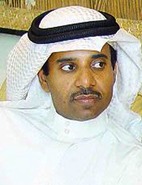What does the arrival of Trump mean for us?
What does the arrival of President-elect Donald Trump mean for us? How much would that affect Saudi relations with the US? I have heard this question a lot since last Wednesday, and my answer is that: Relations with the United States stand on three bases: Mutual interests, fundamental strategies and political cooperation.
On the first base is a deeply-rooted, time-tested and powerful 85-year-old’s partnership, since the oil agreement was signed with US oil companies during the early 1930s. This partnership has expanded to cooperation in military, security, financial, commercial, educational and developmental areas in the following decades.
Saudi Arabia, today, is the largest market for a wide range of American products, which reached $20 billion in 2015, and more in the form of investments. From F15 to Dreamliner, GMC to iPhone, oil drillers to security systems, Coca cola to McDonald, US products are flooding our markets and satisfying our daily needs.
The US market has accommodated hundreds of billions of investment and oil and petrochemical products. Generations of Saudis have graduated from US schools and universities, military and security academies and returned to lead a comprehensive developmental renaissance that built up the country to one the of world most developed, largest economies, and best equipped armies.
Saudi-US partnership
This sort of relationship is what the founder of modern Saudi Arabia, King Abdulaziz Al-Saud, envisioned when he said that Britain is a friend, but America is a partner, and partners come before friends.
The second base is at the intersection of regional and international strategic interests, the convergence of objectives and similarity of means. Both countries are working for global and regional peace and protecting the security of international waterways in the Arabian Gulf and the Red Sea in order to fight terrorism and drain its resources. They are supporting UN efforts in the fields of environmental protection, human rights and free trade.
Saudi-US relations are not free from thorny issues, such as JASTA Law, and US leniency toward troublemakers — Iran and Israel. However, these differences are normal in any relationship
Dr. Khaled M. Batarfi
They are also striving to achieve these lofty goals through peaceful and defensive means, such as providing material and political support to concerned international organizations and to enforce resolution through implementation of Security Council and international arbitration institutions.
The third base is cooperation to resolve regional conflicts, such as the Palestinian, Syrian and Yemeni, and Iranian interventions and violations of UN resolutions.
Saudi-US agreement on the first and second bases is almost full. At the third base, the two allies agree on goals and might disagree on mechanisms and details. For example, on the Palestinian issue we agree on a two-state solution, but disagree on the method of implementation.
In Syria we agree on the application of Geneva 1 framework, and all Security Council resolutions, but disagree on how to support the Syrian opposition and respond to the Russian intransigence. In Yemen, our agreement is full on the implementation of the Security Council resolutions and on US Kerry Peace Plan.
Still Saudi-US relations are not free from thorny issues, such as JASTA Law, and US leniency toward troublemakers — Iran and Israel. However, these differences are normal in any relationship, and as a result of different interests and visions toward certain issues and style.
Tackling terror
Perhaps the new American president will be more assertive in dealing with terrorism sponsors and troublemakers in the region, as promised. These include Iran and militias like Hezbollah, ISIS, al-Qaeda and the Houthis.
As for election promises, such as charging allies for protection, I expect the new president to be briefed by his state, intelligence and defense team, during his first days in office, that US foreign military bases and access privileges are there to serve its own interests, guarding international waterways, fighting terrorism and protecting Israel. And that what America had for free or almost free, other superpowers, like Russia, China, France and Britain, would pay hefty fees for.
All in all, US-Saudi relations have been built on solid grounds, since founded by King Abdulaziz Al-Saud and the 32nd US President, Franklin D. Roosevelt, in the 1930s. They remain so, thanks to the good works of thirteen presidents and six kings, up to the seventh king, Salman Bin Abdulaziz and the forty-fifth President, Donald Trump.
These constants and fundamentals will not be affected by a change of leaders. However, policies and stands over certain issues may do.
Hopefully, the new leadership may find it more rewarding and beneficial to US interests if it cooperates with it allies and partners in good faith. We have tried two-faced politics for eight years and it was ugly. Let’s try, “What you see is what you get” leaders, it might get better!
This article was first published in the Saudi Gazette on Nov. 15, 2016.
______________________
Dr. Khaled M. Batarfi is a Saudi writer based in Jeddah. He can be reached at [email protected]. Follow him at Twitter: @kbatarfi

